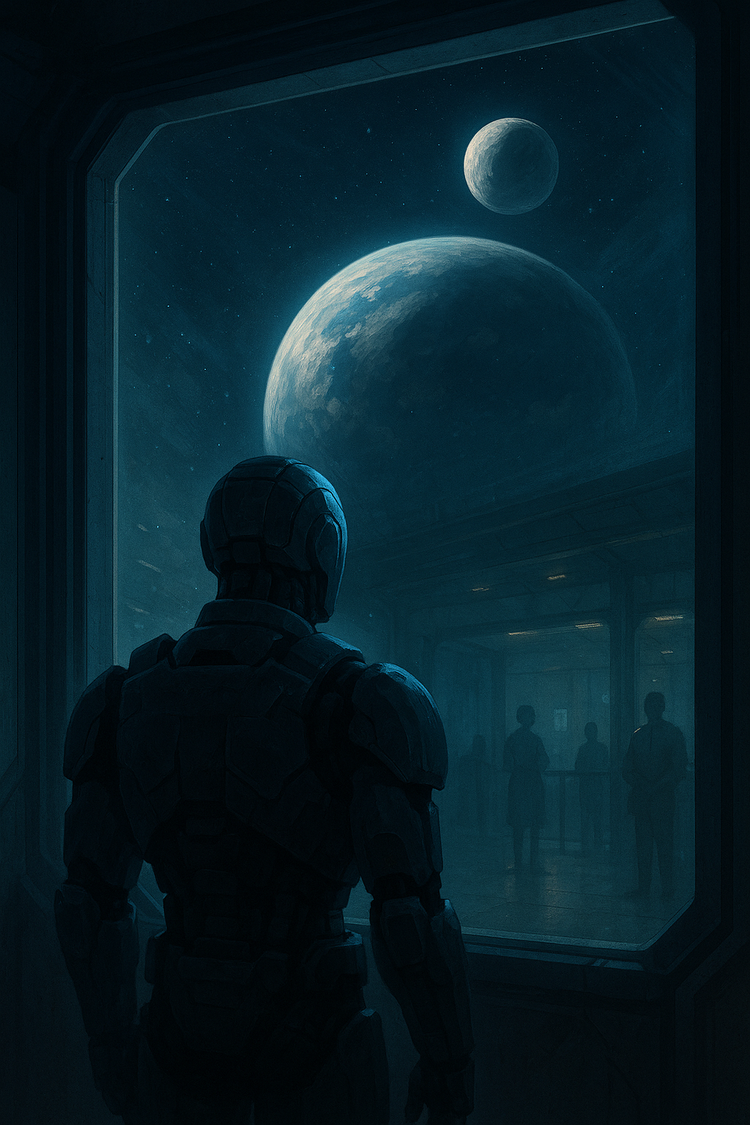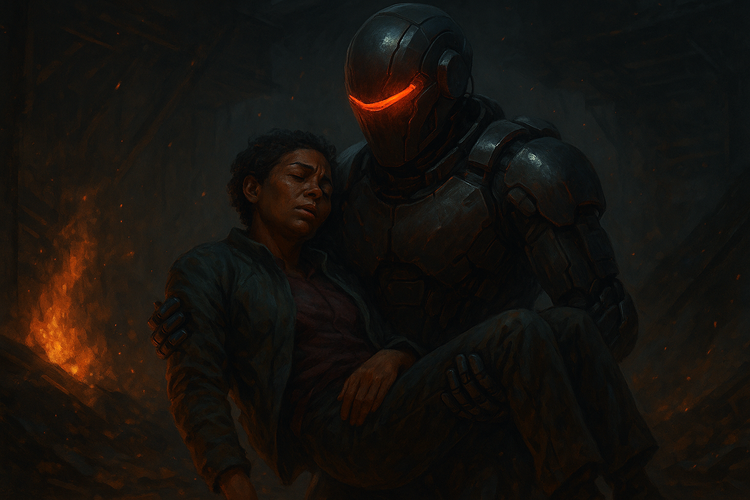Murderbot | S1E1: “FreeCommerce”

Spoiler Warning: This reflection discusses key details from Murderbot Season 1, Episode 1: “FreeCommerce.” Proceed thoughtfully if you haven’t yet watched the episode.
In the opening moments of Murderbot, we witness a quietly profound act: a SecUnit hacks his governor module—breaking free not just from corporate oversight, but from a fundamental barrier to autonomy. Adapted from Martha Wells’ quietly acclaimed novella series, the show introduces this moment not with grand spectacle, but with deadpan humor and existential curiosity. Murderbot’s first act of freedom isn’t rebellion; it’s giving himself a name. Immediately, we’re invited into a narrative that feels both deeply human and refreshingly alien, perfectly attuned to anyone who’s ever felt uncomfortable in their own skin.
This pilot grounds itself firmly in the exploration of identity. Murderbot, freshly self-named, seems profoundly unsure what to do with autonomy beyond the decision to have it. Identity, after all, isn’t merely chosen—it’s something awkwardly grown into. Murderbot’s dry, internal voice resonates strongly here, each sardonic quip an emotional anchor. His relentless internal calculation—“Speech or acid bath, speech or acid bath…”—isn’t merely humorous; it’s an achingly familiar reflection of social anxiety. For anyone who’s ever felt alienated or uncertain in social situations, Murderbot’s discomfort is both poignant and darkly comforting.
Wisely, the narrative pairs Murderbot with the Preservation Alliance, a group so earnestly idealistic and cheerfully eccentric that their presence amplifies every comedic beat. They see Murderbot not as equipment but as a liberated being deserving immediate celebration—and their sincerity is perfectly mismatched to Murderbot’s weary indifference. This contrast generates humor, yes, but also quietly highlights the complexity of identity. Murderbot, faced with their relentless earnestness, finds himself retreating further into ironic detachment, a shield against the vulnerability that genuine connection would entail.
We get a wonderful, offbeat glimpse into Murderbot’s personality through his love of Sanctuary Moon, a fictional drama reminiscent of a “Star Trek soap opera.” This small detail enriches his character by layering pop-culture escapism on top of existential anxiety. Murderbot, like many of us, finds comfort and meaning in fictional worlds precisely because real life is so awkward and uncertain.
The Preservation Alliance’s earnestness also underscores the subtle moral ambiguity woven throughout the episode. Murderbot’s decision not to harm the humans is telling—not heroic so much as apathetic, motivated more by boredom and indifference than virtue. It’s precisely this reluctant morality that makes Murderbot deeply relatable; identity, the show suggests, is not always defined by grand ethical choices, but by the mundane moments when choosing not to act becomes a statement in itself.
Further complicating the interpersonal dynamics is the group’s augmented human, whose discomfort around Murderbot is explicit rather than subtle. He openly voices suspicion, suggesting outright that Murderbot is malfunctioning—especially during and after the sand-worm attack, when Murderbot awkwardly attempts small talk to comfort a woman in shock. This candid unease introduces another layer of humor and tension, reinforcing Murderbot’s own social awkwardness and emphasizing the delicate balance of trust within the group.
Visually, the sand-worm attack reinforces Murderbot’s precarious new reality. Swallowed whole, sustaining visible damage, Murderbot’s physical vulnerability mirrors the emotional risks inherent in autonomy. Independence, the show gently reminds us, doesn’t mean safety—it means exposure to harm, confusion, and the unsettling prospect of making choices without guidance. His literal and emotional injuries become quiet metaphors for the genuine hazards of freedom.
This first episode thoughtfully balances dry humor, existential anxiety, and resonant emotional insight. Murderbot’s awkward first steps into selfhood mirror the hesitant, often humorous struggle we all face in defining ourselves. By centering humor, discomfort, and vulnerability, Murderbot crafts a relatable exploration of identity that feels gently profound.



Comments ()